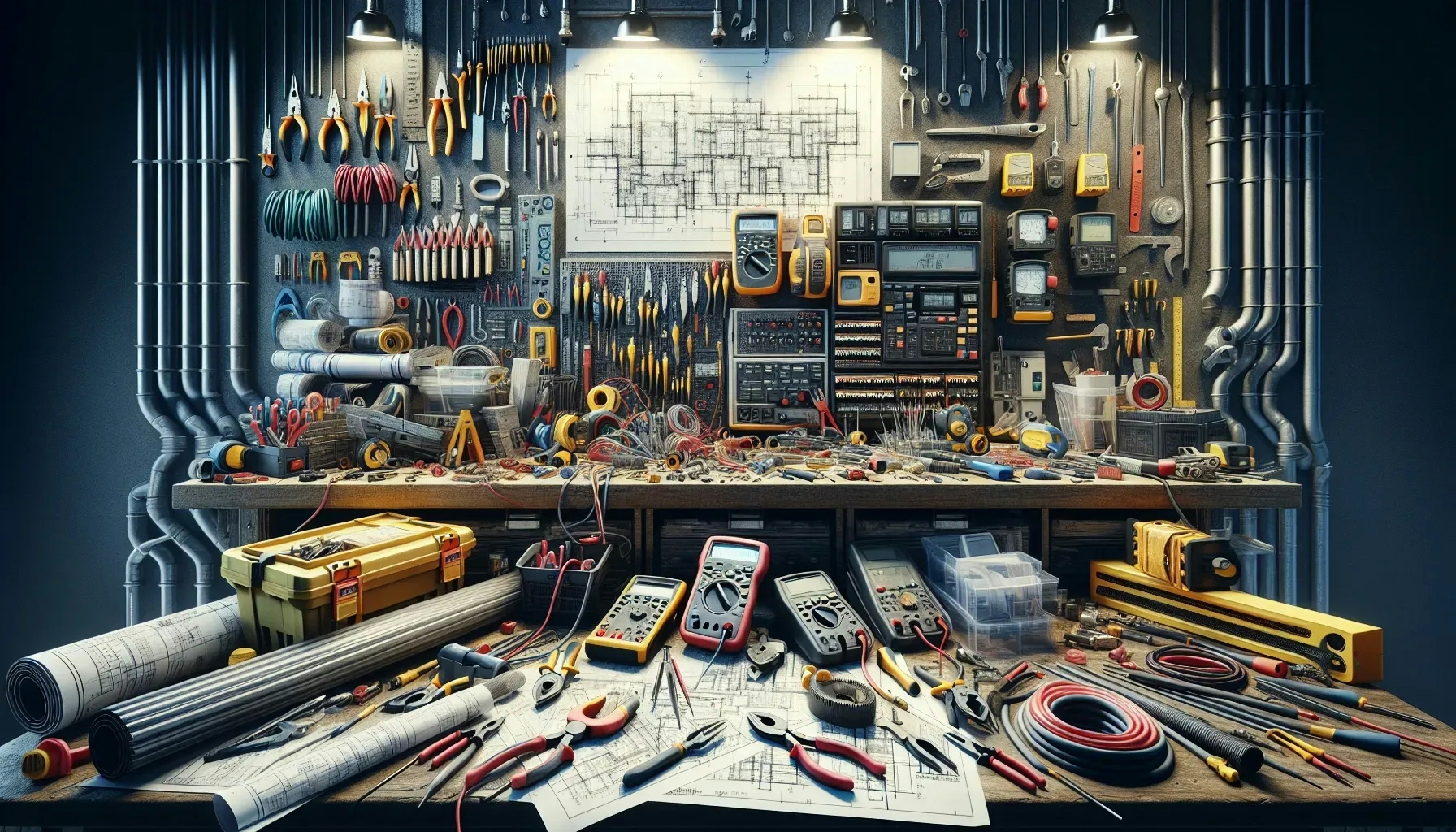How Does Collaboration Benefit Electrical Projects?
When electricians intertwine expertise with other professionals, the benefits can be compounding, as evidenced by an Electrician's successful restaurant remodel. Alongside their experience, our compilation highlights the wide-ranging effects of interdisciplinary collaboration. From innovative problem-solving to streamlined project timelines, discover the possibilities when diverse disciplines plug into electrical projects.
- Facilitating Smooth and Compliant Installs
- Exceeding Client Expectations
- Pushing Boundaries With Innovative Solutions
- Mitigating Risk
- Designing Comprehensive Outcomes
- Maintaining Momentum With Team Adaptability
- Streamlining Processes for Efficiency
Facilitating Smooth and Compliant Installs
Working on a restaurant remodel—had to collaborate with the architect to ensure the lighting design fit the building layout and with the safety inspector to approve the emergency exit signs. Smoother install, happy client, fire code met—win, win, win.

Exceeding Client Expectations
One instance that stands out is when we were handling a large-scale condominium project that required significant electrical work. We had to collaborate closely with architects, engineers, and electrical contractors to ensure everything flowed seamlessly.
In this particular case, we had to design the electrical layout of the building while keeping in mind the architectural aesthetics and structural integrity. It was quite the balancing act. We sat down with the architects to understand their vision for the building and then worked closely with the engineers to ensure that the electrical systems aligned perfectly with the architectural plans.
One challenge we faced was finding a way to incorporate sustainable energy solutions into the electrical design. We brought in experts in green technology and renewable energy to help us integrate solar panels and energy-efficient lighting systems into the building's infrastructure.
The outcome was fantastic! Not only did we meet all the project deadlines, but we also exceeded our clients' expectations. The collaborative effort resulted in a state-of-the-art condominium building that not only looked stunning but also operated efficiently and sustainably.

Pushing Boundaries With Innovative Solutions
When electrical projects embrace collaboration with other disciplines, they tap into a broader pool of knowledge that fosters innovative solutions. Interdisciplinary expertise can spark creativity and lead to the discovery of cutting-edge technologies and methods. This cross-pollination of ideas ensures that electrical projects are not limited by the knowledge of a single field, but are instead enhanced by a myriad of perspectives.
The resulting innovations can set new industry standards and push the boundaries of what is possible in electrical engineering. If you're embarking on an electrical project, consider teaming up with experts from various fields to unlock groundbreaking innovations.
Mitigating Risk
Collaborative efforts in electrical projects incorporate insights from diverse disciplines, which helps in identifying and mitigating potential risks early on. This diversity in thought and experience enables teams to foresee problems that may not be evident to professionals within a single domain, allowing for preemptive solutions. When risks are managed effectively, projects often proceed more smoothly and with fewer unforeseen complications.
Moreover, projects that are proactively defended against potential issues are more likely to stay on budget and on schedule. Engaging with experts from different fields can be a strategic move to safeguard your project against risks.
Designing Comprehensive Outcomes
Bringing together professionals from various disciplines to work on an electrical project can yield designs that take into account a wider range of factors and user needs. These collaborative designs often excel in functionality, durability, and aesthetics, as they are scrutinized from multiple professional angles. A holistic approach to design can reveal opportunities for integration that might be overlooked by a single-discipline team, and can also ensure that the project will be well-received by a broader audience.
In essence, collaboration leads to more comprehensive design outcomes that can satisfy a variety of stakeholders. To create designs that stand the test of time and use, invite a range of professionals to contribute to your electrical project.
Maintaining Momentum With Team Adaptability
Electrical projects benefit from adaptability, which is bolstered by the involvement of experts from different disciplines. By drawing on the collective experience of a diverse team, project plans can be quickly adjusted in response to new developments or unforeseen events. This flexibility can be crucial for staying ahead of technological advancements and adjusting to market trends.
With a team equipped to handle unexpected shifts, an electrical project can maintain its momentum and continue moving forward regardless of challenges. Assemble a team with varied expertise to ensure your project can adapt to changes swiftly.
Streamlining Processes for Efficiency
Collaboration between different disciplines in an electrical project can streamline processes and compress project timelines. A mix of specialized knowledge can pinpoint the most effective approach to a problem, eliminating the trial-and-error that often extends project duration. This synergy can drastically improve the efficiency of team workflows, as tasks can be assigned to those most suited for them based on their unique skills and knowledge areas.
The coordination of such a team leads to rapid problem-solving, decision-making, and execution, shortening the timeframe from conception to completion. To accelerate your project, foster a collaborative environment that taps into diverse specialist knowledge.

